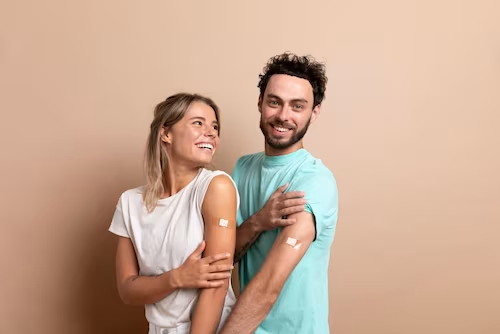Vaccinations for Dominican Republic
Vaccinations for Dominican Republic: Your essential health & travel guide
Preparing for a trip to the Dominican Republic means looking forward to stunning beaches, vibrant culture, and unforgettable adventures. However, ensuring your health and safety is just as important as packing your swimwear. This comprehensive guide provides essential Health - Dominican Republic travel advice, focusing on recommended vaccinations for Dominican Republic, medication considerations, and general health precautions. With Jumbo Car, you'll have the freedom to explore the island, from bustling cities to remote natural wonders, but it's crucial to prepare your health before you go.
Recommended vaccinations for your Dominican Republic trip
Before you travel, consulting with a healthcare professional or a travel clinic is highly recommended. They can provide personalized advice based on your medical history, planned activities, and specific regions you intend to visit. However, here's a general overview of vaccinations for Dominican Republic commonly advised for travelers.
Routine vaccinations
Ensure your routine vaccinations are up-to-date. These include:
Measles, Mumps, Rubella (MMR)
Diphtheria, Tetanus, Pertussis (DTaP)
Varicella (Chickenpox)
Polio
Influenza (Flu)
Travel-specific vaccinations

Depending on your travel plans, some specific vaccinations may be recommended:
Hepatitis A: Recommended for most travelers, as Hepatitis A can be contracted through contaminated food or water.
Typhoid: Also recommended for most travelers, especially those who plan to eat outside of major resorts or visit rural areas.
Hepatitis B: Recommended if you plan extended stays, anticipate exposure to blood or bodily fluids, or engage in high-risk activities.
Rabies: Recommended for travelers who will be spending a lot of time outdoors, especially in rural areas, or working with animals.
Yellow Fever: Generally, Do I need yellow fever vaccine for Dominican Republic? No, it's not typically required for entry unless you are arriving from a country with a high risk of yellow fever transmission. Always check the latest Dominican Republic International Travel Information for updates.
Malaria and mosquito-borne illnesses in the Dominican Republic
Understanding the risk of mosquito-borne illnesses is a key part of Dominican Republic Vaccinations & Travel Health Advice.
Malaria risk and prevention
A common question is, "Do I need malaria tablets for the Dominican Republic?" The risk of Malaria in the Dominican Republic is generally low and localized, with cases mostly occurring in specific rural areas, not typically in major tourist zones like Punta Cana. For instance, the Dominican Republic malaria risk Punta Cana is considered very low.
Dominican Republic malaria map: Consult your doctor or a travel health clinic for the most current information on malaria risk zones. They can advise if malaria tablets are necessary based on your specific itinerary.
Prevention: Regardless of whether medication is prescribed, take precautions to avoid mosquito bites: use insect repellent containing DEET, wear long sleeves and pants during dusk and dawn, and sleep under mosquito nets if your accommodation isn't screened or air-conditioned.
Other mosquito-borne illnesses
Other mosquito-borne illnesses present in the Dominican Republic include Dengue, Chikungunya, and Zika. There are no vaccines for these, so mosquito bite prevention is your primary defense.
Medications and health precautions during your stay
Beyond vaccinations, managing your medications and practicing general health safety are vital for a healthy trip.

List of medication not allowed in Dominican Republic
It's crucial to be aware of any List of medications not allowed in the Dominican Republic or those that require special documentation. Always travel with medications in their original, labeled containers. If you take prescription medication, carry a copy of your prescription and a letter from your doctor explaining why you need the medication. This can help avoid issues with customs.
Avoiding sickness in Punta Cana and beyond
"How to avoid getting sick in Punta Cana?" and generally in the Dominican Republic involves practicing good hygiene and being mindful of food and water safety.
Food safety: Eat only well-cooked food. Avoid raw or undercooked meat, fish, or vegetables. Opt for fruits you can peel yourself.
Water safety: Drink only bottled or boiled water. Avoid tap water, and be cautious with ice in drinks unless you're sure it's made from purified water.
Hand hygiene: Wash your hands frequently with soap and water, or use an alcohol-based hand sanitizer.
Dominican Republic sickness symptoms: Be aware of common travel-related sickness symptoms like diarrhea or fever. If symptoms persist or worsen, seek medical attention promptly. Local pharmacies are widely available, but for serious concerns, medical clinics or hospitals are accessible in tourist areas.
Is it safe to travel to the Dominican Republic today?
Regarding the question, "Is it safe to travel to the Dominican Republic today?", generally, yes, it is safe for tourists, especially in resort areas. However, like any travel destination, it's important to be aware of your surroundings, take standard safety precautions, and stay informed about current events. Follow Health - Dominican Republic travel advice from official sources before and during your trip.
A healthy trip to the Dominican Republic begins with careful preparation. By addressing Vaccinations for Dominican Republic, understanding Malaria Dominican Republic risks, and practicing smart health precautions, you can minimize potential health issues and focus on enjoying your Caribbean adventure. Remember to consult your healthcare provider for personalized advice before you leave. With your health in check and the convenience of a Jumbo Car to explore, your journey through the vibrant landscapes and rich culture of the Dominican Republic promises to be truly unforgettable.
Do you need any vaccinations for the Dominican Republic?
While no vaccinations are strictly required for entry from most countries (unless arriving from a yellow fever risk area), routine vaccinations should be up-to-date. Vaccinations for Hepatitis A and Typhoid are highly recommended for most travelers, and others like Hepatitis B or Rabies may be advised based on your itinerary. Always consult a travel health professional.
What is required for travel to the Dominican Republic?
For travel to the Dominican Republic, you generally need a valid passport (valid for at least 6 months beyond your stay), a completed E-Ticket (digital form for health affidavit, customs, and embarkation/disembarkation), and a confirmed return or onward ticket.
Are there travel warnings for the Dominican Republic right now?
Travel warnings for the Dominican Republic can change. It's crucial to check the latest Dominican Republic International Travel Information from your government's official travel advisory website (e.g., U.S. Department of State, UK Foreign Office) close to your travel dates. Generally, routine caution is advised, similar to many popular tourist destinations.
How to avoid getting sick in Punta Cana?
To avoid getting sick in Punta Cana (and elsewhere in the DR), focus on food and water safety. Drink only bottled water, avoid ice unless certain it's made from purified water, and eat only well-cooked food. Practice frequent hand hygiene with soap and water or hand sanitizer. Use insect repellent to prevent mosquito-borne illnesses.